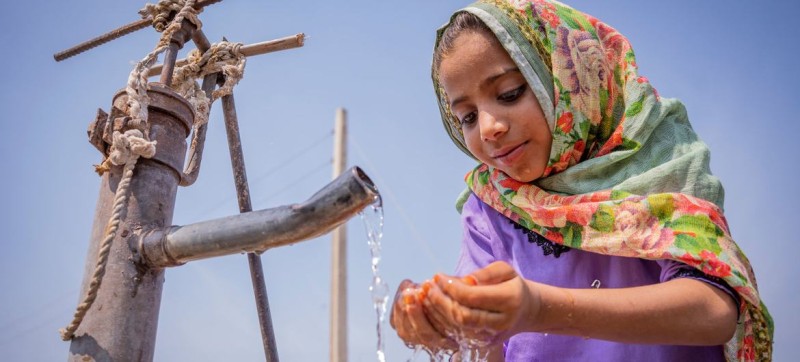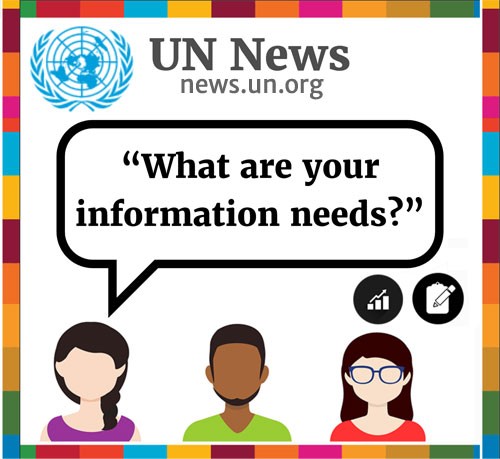
© UNICEF A six-year-old girl drinks water from a community hand pump in Pakistan. Globally, around 2.2 billion people lack access to safely managed drinking water.
Water pollution poses a significant challenge to human health and the environment in many countries.
With around 2.2 billion people lacking “safely managed drinking water”, 3.5 billion without safe sanitation access, and two billion devoid of basic hygiene services in 2022, the world is moving too slowly to reach the SDG 6 ensuring that basic water needs can be met.
According to the UN’s Department of Economic and Social Affairs (DESA), achieving universal coverage by 2030 requires much faster progress.
Tweet URL
There needs to be a six-fold increase in providing access to drinking water, a five-fold boost for sanitation, and a three-fold increase for hygiene services to meet the targets, and urgent acceleration is needed in 107 countries.
‘New economics’ of water
The issue was centre stage earlier this year at the UN’s first ever Water Conference. Speaking at Tuesday’s event, President of the UN General Assembly Csaba Kőrösi, who spearheaded the March Water Conference, called for the reinforcement of water as a fundamental human right.
He called for the development of a “new economics of water” based on innovations and the establishment of a global water education network to build the capacity and support for developing countries.
He also reminded that at the Water Conference world leaders vowed “to move towards an inspiring, cooperative, transboundary and transformative Water Action Agenda,” adding that $300 billion were committed to its implementation with a potential of unlocking at least $1 trillion for this purpose.
Water often becomes a source of tensions between countries. Only 32 out of 153 countries with shared rivers, lakes, and aquifers have more than 90 per cent of those waters covered by international operational agreements.
The General Assembly President underscored the need for inclusive and comprehensive transboundary agreements, based on the UN Water Convention, to support countries in all regions.
UN Water Envoy
“We need to reform the institutional architecture. We need a board of UN agencies, a UN Water Envoy to lead it, supported by reformed UN Water and a scientific practice panel,” said Mr. Kőrösi.
Delegates speaking at the Forum expect that the UN Secretary-General will soon announce a Special Envoy for water with a mandate aiming to strengthen the global water governance and to enhance the visibility of water as a crucial part of the international agenda.
Among other topics the Forum discussed as delegates take stock of progress towards SDG 6, were the development of an integrated water and climate policy at national and global levels by 2030, and the establishment of a global water information system.
“We know what to do. We know how to do. What is missing now is the real action,” said the top General Assembly official.

2023 UN News User Survey
Thank you in advance for agreeing to participate in our survey so we can improve and tailor our products to your needs. The survey will take no more than 4 minutes to complete.

